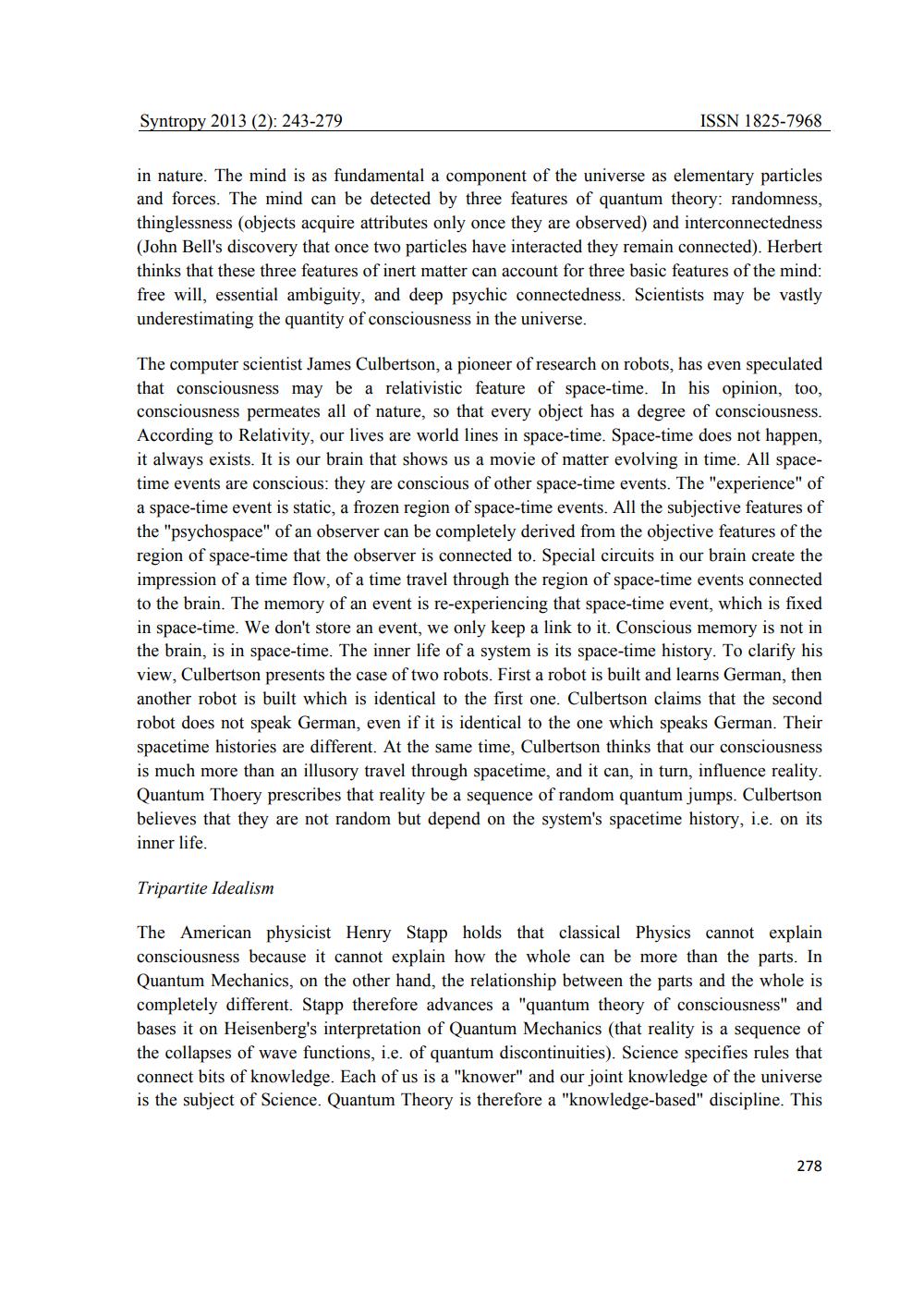________________
Syntropy 2013 (2): 243-279
ISSN 1825-7968
in nature. The mind is as fundamental a component of the universe as elementary particles and forces. The mind can be detected by three features of quantum theory: randomness, thinglessness (objects acquire attributes only once they are observed) and interconnectedness (John Bell's discovery that once two particles have interacted they remain connected). Herbert thinks that these three features of inert matter can account for three basic features of the mind: free will, essential ambiguity, and deep psychic connectedness. Scientists may be vastly underestimating the quantity of consciousness in the universe.
The computer scientist James Culbertson, a pioneer of research on robots, has even speculated that consciousness may be a relativistic feature of space-time. In his opinion, too, consciousness permeates all of nature, so that every object has a degree of consciousness. According to Relativity, our lives are world lines in space-time. Space-time does not happen, it always exists. It is our brain that shows us a movie of matter evolving in time. All spacetime events are conscious: they are conscious of other space-time events. The "experience" of a space-time event is static, a frozen region of space-time events. All the subjective features of the "psychospace" of an observer can be completely derived from the objective features of the region of space-time that the observer is connected to. Special circuits in our brain create the impression of a time flow, of a time travel through the region of space-time events connected to the brain. The memory of an event is re-experiencing that space-time event, which is fixed in space-time. We don't store an event, we only keep a link to it. Conscious memory is not in the brain, is in space-time. The inner life of a system is its space-time history. To clarify his view, Culbertson presents the case of two robots. First a robot is built and learns German, then another robot is built which is identical to the first one. Culbertson claims that the second robot does not speak German, even if it is identical to the one which speaks German. Their spacetime histories are different. At the same time, Culbertson thinks that our consciousness is much more than an illusory travel through spacetime, and it can, in turn, influence reality. Quantum Thoery prescribes that reality be a sequence of random quantum jumps. Culbertson believes that they are not random but depend on the system's spacetime history, i.e. on its inner life.
Tripartite Idealism
The American physicist Henry Stapp holds that classical Physics cannot explain consciousness because it cannot explain how the whole can be more than the parts. In Quantum Mechanics, on the other hand, the relationship between the parts and the whole is completely different. Stapp therefore advances a "quantum theory of consciousness" and bases it on Heisenberg's interpretation of Quantum Mechanics (that reality is a sequence of the collapses of wave functions, i.e. of quantum discontinuities). Science specifies rules that connect bits of knowledge. Each of us is a "knower" and our joint knowledge of the universe is the subject of Science. Quantum Theory is therefore a "knowledge-based" discipline. This
278




